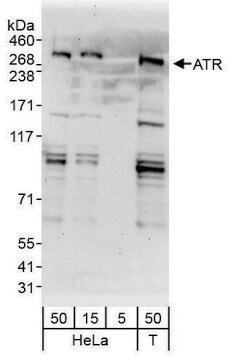MAB3478
Anti-1-cys Peroxiredoxin Antibody, clone 8H11
ascites fluid, clone 8H11, Chemicon®
Synonym(s):
aiPLA2, Peroxiredoxin 6, Non-selenium Glutathione Peroxidase
About This Item
Recommended Products
biological source
mouse
Quality Level
antibody form
ascites fluid
antibody product type
primary antibodies
clone
8H11, monoclonal
species reactivity
human, rat
manufacturer/tradename
Chemicon®
technique(s)
immunocytochemistry: suitable
immunohistochemistry: suitable
western blot: suitable
isotype
IgM
NCBI accession no.
UniProt accession no.
shipped in
dry ice
target post-translational modification
unmodified
Gene Information
human ... PRX(57716)
General description
Specificity
Immunogen
Application
Neuroscience
Oxidative Stress
Immunohistochemistry on 4% paraformaldehyde fixed rat lung tissue.
Immunocytochemistry on rat type II alveolar epithelial cells.
Optimal working dilutions must be determined by the end user.
Physical form
Storage and Stability
Legal Information
Disclaimer
Not finding the right product?
Try our Product Selector Tool.
Storage Class Code
10 - Combustible liquids
WGK
WGK 1
Flash Point(F)
Not applicable
Flash Point(C)
Not applicable
Certificates of Analysis (COA)
Search for Certificates of Analysis (COA) by entering the products Lot/Batch Number. Lot and Batch Numbers can be found on a product’s label following the words ‘Lot’ or ‘Batch’.
Already Own This Product?
Find documentation for the products that you have recently purchased in the Document Library.
Our team of scientists has experience in all areas of research including Life Science, Material Science, Chemical Synthesis, Chromatography, Analytical and many others.
Contact Technical Service